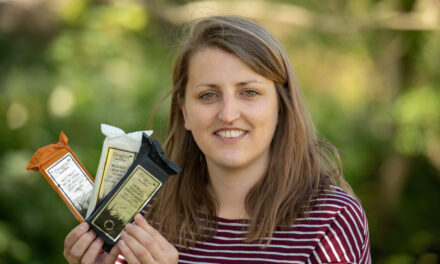A police boss has launched a campaign to help the forgotten victims of crime – the children whose parents are sent to prison.
North Wales Police and Crime Commissioner Winston Roddick CB QC says these youngsters all too often fall through the cracks in the support network.
Mr Roddick’s comments came in a report to the North Wales Safer Communities Board which was set up to provide strategic direction for the community safety and youth justice across the region.
The board comprises all six North Wales councils, the Welsh Government, the probation service, the Fire and Rescue Service, the Welsh Council for Voluntary Action, the Betsi Cadwaladr Health Board, North Wales Police and the office of the Police and Crime Commissioner.
The advisory board endorsed Mr Roddick’s report and the fact that children who had a parent in prison require extra support.
The commissioner said: “One of the measures included in my Police and Crime Plan under the Reduce Harm and the Risk of Harm objective, is reducing repeat offending.
“I am greatly concerned that there is no uniform approach in North Wales for the systematic identification of children affected by parental imprisonment.
“It is estimated that more than 200,000 children in England and Wales are affected at any one time by parental imprisonment and around 18,000 have a mother in prison.
“This suggests that nearly three times more children experience separation and family disruption through parental imprisonment than are placed in care in England and Wales each year.”
He added: “The loss of a parent to imprisonment has been likened to bereavement. But if children are effectively supported while a parent is in jail the offender finds it much easier to resettle upon release and is less likely to reoffend.
“Evidence clearly shows that if children are left in particularly chaotic surroundings when mum goes to prison this adversely affects mum’s mental health, therefore making resettlement extremely difficult.
“Affected children are twice as likely to experience mental health problems and boys who experience the imprisonment of a father are three times more likely, compared to their peers, of becoming involved in offending behaviour themselves.”
A report by Barnardo’s entitled Every Night you Cry, suggests that 36 per cent of boys separated from their parents because of parental imprisonment during childhood have high levels of anxiety and depression at age 48 compared to 15% of boys with no history of imprisonment or separation.
And a massive 65 per cent of boys with a convicted father will go on to offend themselves.
The North Wales Safer Communities Board has asked the Regional Safeguarding Board covering North Wales to look into the matter and report back to them.
Mr Roddick added: “It is therefore clear that not providing support for children of an imprisoned parent could have long-term consequences for the child, their family and society as a whole.
“I appreciate that identifying the children of imprisoned parents is not always straightforward but given their increased vulnerabilities I suggest it is vital we do so.”
However, Mr Roddick says rather than expecting local authorities and other partners creating new support services, children affected by parental imprisonment need to be signposted to services that already exist such as Families First, family support services with local authorities or support within schools.
Mr Roddick concluded: “How we support these vulnerable children will very much depend on the services that are currently available within each local authority area.
“All I ask is for acknowledgement that such children deserve to be signposted to some support and that we share information at a later date as to how each partner agency has taken steps to support these children.”
Cllr Hugh Jones, chair of the North Wales Safer Communities Board, said: “As a board we recognise the important issue of parental imprisonment and the affect it has on many children. There is without doubt a contact issue facing many families.
“However, there is no easy fix. It is a highly complex subject that the Police and Crime Commissioner has raised. There are no simple solutions but we have asked board members to look into the issue and report back to the full board in due course.”
Jenny Williams, chair of the North Wales Safeguarding Board, added: “We recognise there are vulnerable children and families who get caught up in the criminal justice system and as such support will be available through the appropriate channels.”










